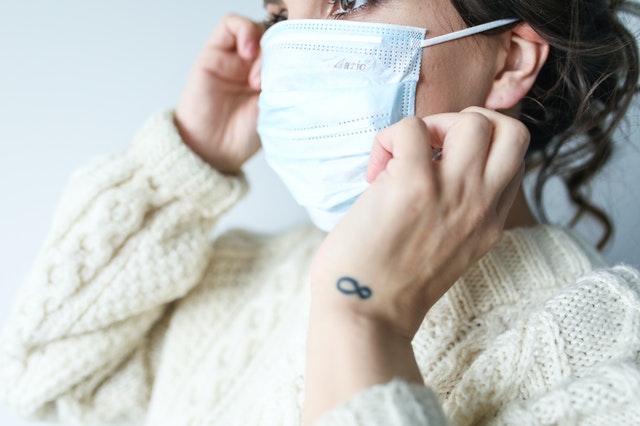What is Plan B and What Does it Mean For Workplaces?
Detailed in the UK Governments Autumn and Winter Plan, option B could see the re-introduction of masks and other restrictions. What does this mean for the newly...
Read Full Article
It remains unclear how much of a threat the new Omicron COVID-19 variant poses, so what are the definitive facts?
On 26 November 2021, the World Health Organisation designated B.1.1.529 (known as the Omicron variant) as a variant of concern.
At the time of writing, six cases have been recorded in Scotland, alongside the three already detected in England. Several measures have been reinstated in the UK, including mandatory mask-wearing on public transport and shops, as well as compulsory PCR tests for everyone entering the UK.
There are significant uncertainties at this stage regarding Omicron’s transmissibility, the severity of disease, and response to vaccination. But here’s what we know so far:
Prime Minister Boris Johnson has recently confirmed new, temporary measures in the UK. These will be reviewed in three weeks (as of 27 November 2021)
The official workplace guidance from the government has not yet been updated, but any upcoming additional workplace safety guidance will be available here.
As with other changes in risk throughout the pandemic, those companies who have reopened office space will need to plan ahead in the event of an Omicron case amongst their staff, particularly amongst those travelling nationally and internationally.
*Editor’s note – This is a developing story. All information presented is correct as of 29.11.21, referencing the WHO document: Enhancing Readiness for Omicron (B.1.1.529): Technical Brief and Priority Actions for Member States
Picture: a photograph of a person putting a face mask on
Article written by Ella Tansley | Published 29 November 2021
Detailed in the UK Governments Autumn and Winter Plan, option B could see the re-introduction of masks and other restrictions. What does this mean for the newly...
Read Full ArticleAs Greater Manchester and South Yorkshire move into tier three of lockdown, the Health and Safety Executive will continue to operate safety inspections to check for...
Read Full ArticleIt’s been several months since COVID-19 was declared a global pandemic by WHO, and the FM industry continues to meet the various challenges it presents. Previous...
Read Full ArticleCoronavirus may have forced businesses to review their social accountability, but has CSR in general taken a backseat throughout the pandemic? Prioritising CSR...
Read Full ArticleGuidance to help businesses to re-open and operate safely has been published by the government. Back in March, the government unveiled its original Coronavirus...
Read Full ArticleTim Wright, partner at international law firm Fladgate, shares his thoughts on the ongoing challenges around facilities management outsourcing amid the COVID-19 pandemic....
Read Full ArticleAfter the government unveiled its Coronavirus action plan, following a growing number of cases in the UK, it’s more important than ever that the FM sector continues...
Read Full ArticleAs the COVID-19 Inquiry continues, a leading expert on aerosols will give evidence on how UK healthcare officials denied overwhelming scientific evidence that COVID-19 is...
Read Full ArticleShifts in commuting patterns driven by the COVID-19 pandemic continue to impact urban planning, according to the latest census data. Watch the...
Read Full ArticleThe Insolvency Service has disqualified over 800 company directors for misusing loan schemes intended to support businesses during the COVID-19 pandemic. During...
Read Full Article